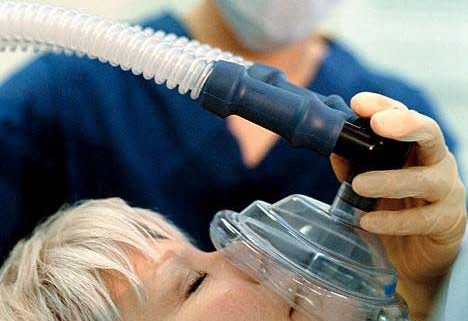Why is nitrous oxide not offered for all procedures?
Have you ever been laying in the dentist’s chair, maybe nervous or bored, and wondered why you aren’t being given nitrous oxide (also known as laughing gas)? Short answer, it depends on the patient! Nitrous oxide is a form of sedation called “inhalation sedation.” Although it’s considered an ideal clinical sedative, there are some things to consider.
Who needs nitrous oxide?
Nitrous oxide is an odorless, colorless gas that eliminates pain and induces euphoria after breathing it in for about five minutes. There may be visual or auditory effects, as well as lightheadedness or “the giggles.” Once the gas is no longer being inhaled, it wears off in three to five minutes. It is often administered in the following cases:
- For long dental procedures to reduce stress, fatigue, and awareness of time
- To calm frightened children
- To ease the nerves of patients
- To control gagging
In these cases, the use of nitrous oxide makes the patient more at ease, which allows their jaw to relax. Know how your jaw tightens when you’re stressed? Imagine feeling that way at the dentist, and having to force your mouth to stay open for an extended period of time. It’s difficult for the patient and the dentist. Some dentists allow laughing gas on request, but keep in mind, if it’s not absolutely necessary, your insurance may not cover it. The cost of sedation will come directly from your own pocket.
Certain factors don’t allow for the use of nitrous oxide.
While nitrous oxide is a relatively safe and effective method of sedation, there are some cases where it should not be used. The gas is administered via a mask that fits over the nose, and the tubes that pump the gas into the nose hang down the sides of the head. If you can’t breathe through your nose (perhaps due to a cold, or you typically breathe through your mouth) then nitrous oxide cannot be administered. Claustrophobia can also prevent the use of nitrous oxide. A claustrophobic person may not be able to have something sitting on their face for an extended period of time. Patients that have obstructive pulmonary disease are also not good candidates for nitrous oxide, as they have a reduced ability to move gases in and out of the lungs. People with emphysema cannot use it either. Other conditions that prevent the use of nitrous oxide include multiple sclerosis, pregnancy, or psychiatric patients.
As with any other dental procedure, ask your dentist if you would like to use nitrous oxide. They can go over the benefits and risks with you, and determine whether you’re a good candidate. Call Dr. Chauvin’s office to set up an appointment today!



